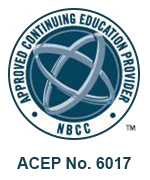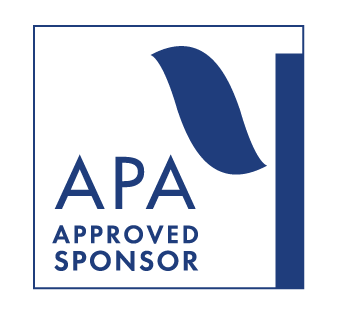Two immersion study days (two-part series or stand-alone) November 7, 2024 and April 28, 2025, 8:00 am – 4:00 pm US ET featuring guest, Virginia Ungar, MD and the IPI Child Program faculty.
CLICK HERE TO REGISTER FOR ONE OR BOTH DAYS
Are you engaged in child therapy supervision as a supervisee or a supervisor? Have you faced a difficult moment in your supervision? You are not alone. Child and adolescent patients are stressful for the adult therapist, and working online brings even more challenges. That’s where supervision can help us learn about the patient, and about our ways of doing and being as child and adolescent therapists.
We learn from observing our recreation of clinical experience in the supervisory relationship. Working with children, the supervisee is faced with the parents’ authority over the child, which can affect the supervisee’s experience of the supervisor. Working with adolescents, the supervisee is dealing with turbulence that can resonate uncomfortably in the supervisory relationship.
How does the supervisee negotiate the supervisory relationship that offers learning but raises mutual anxiety, fears of incompetence, and the shame of not knowing? How does the supervisor support and educate, respect for the supervisee’s cultural affiliations, essential otherness, autonomy, and ownership of their clinical practice? How does the supervisory pair cultivate and sustain a psychic space for truth, fairness, and shared learning?
Please join us at IPI to share concerns and find psychoanalytic ways of thinking about and dealing sensitively with the dilemmas of the child and adolescent psychotherapist in the competence-building supervisory relationship.
Program Date(s):
November 7, 2024Part 1: Young Children
Preceding the IPI weekend conference November 8-10, 2024 The Child in the Adult: New Developments in Child and Adolescent Psychoanalytic Practice Today with Virginia Ungar
November 7th Schedule
Educational Objectives
- List four main principles of ethical supervision based in the research study of Sczesody.
- Identify one major difference between supervision of child therapy and supervision of adult therapy
- Provide two examples of common barriers to creating and maintaining reflective space in supervision of child therapists/analysts
- Describe two ways that supervision can address challenging countertransference pulls in child treatment to maintain a consistent ethical stance.
- identify two ways to enhance a supervisee’s ethical awareness of their own cultural biases in child treatment.
- Recognize one example of a boundary-breaking concern, help the therapist set it in its cultural context, and develop an ethical stance
- Describe one intervention to enable a therapist to access her shut-off feelings in reaction to hearing of her child patient’s experience of physical abuse
- Apply one of Bion’s group assumptions in paired supervision of two child therapists
- Describe the complex interplay between three elements in the process of supervision – the supervisee-patient dyad, the supervisory dyad, and the broader institutional context
- Identify two examples of risk of premature termination in child treatment
- Design two ethical supervisory interventions to secure the treatment
- Name three concepts without which the supervisee cannot possibly work
- Explain the overlapping function of one maternal and one paternal transference in supervision of a child therapy
- Explain to a supervisee Meltzer’s impact on contemporary Kleinian interpretation in child therapy
- Discuss one potential change for programmatic improvement
- Describe two ways students can contribute to ethical standards to support the international community of child clinicians
GAM Group (for child program certificate students)
- Identify and discuss three elements to enhance a supervisee’s clinical skill
- Focus on the therapist’s developing an ethical stance in relation to two challenging moments.
Program Date(s):
April 22, 2025Part 2: Adolescents
A post-conference immersion day with Virginia Ungar, after the IPI weekend conference on couple and family therapy with Damien McCann and Kate Thompson
April 28th Schedule
Educational Objectives
- List two principles of supervision based in the work of Dan Jacobs
- Identify one major difference between supervision of adolescent therapy and supervision of child therapy
- Describe two ways of addressing a supervisee’s challenging countertransference so as to maintain a consistent ethical stance.
- identify two ways to enhance a supervisee’s awareness of their own cultural biases in treatment of adolescents.
- Identify one instance of the intersectionality of diversity and inclusion in a supervisory experience
- Identify one ethical challenge, engage the supervisee in discussion about it, and help them devise an appropriate response
- Empower the supervisee’s development of an ethical stance by their using process and review of two countertransference experiences
- Apply one concept from the Fairbairn’s Object Relations theory to enlighten a supervisee’s understanding of her client’s endopsychic structure
- List three features of adolescence and three features of cultural context that challenge adolescent therapists and design three effective culturally sensitive responses
- Give one example of the impact of the client’s unconscious dynamics on the supervisee’s countertransference and one example of their resonance in the supervisory relationship
- Define resonance, compare it to parallel process, and identify one instance of resonance occurring in real time in the seminar
- Name three concepts without which the adolescent therapy supervisee cannot possibly work
- Explain the overlapping function of the maternal and paternal transferences in supervision of an adolescent therapy
- Explain to a supervisee Donald Meltzer’s impact on contemporary Kleinian interpretation in treatment of adolescents
- Discuss one potential change for programmatic improvement
- Describe two ways students can contribute to the international community of adolescent clinicians
GAM Group (for child program certificate students)
- Identify and discuss three elements to enhance an adolescent therapy supervisee’s clinical skill
- Focus on the adolescent therapist’s developing an ethical stance in relatiion to two challenging moments.
Tuition and Fees
| Part 1 November 7, 2024 |
Part 2 April 28, 2025 |
BOTH Part 1 & 2 Nov 7, 2024 & April 28, 2025 |
|
| General Registration | $185 | $185 | $245 |
| IPI Member | $155 | $155 | $205 |
| Special Rates | |||
| Full-time Student | $75 | $75 | $110 |
| Group Rate (5 or more tickets) |
$75 per person | $75 per person | $100 per person |
| Child Program Students | $0 (included in your program tuition) | ||
Members and Program Students – please log in with your account before registering to receive your discounted price
Full-time Students – email contactus@theipi.org with details about your full time status (university/instiute, program of study, number of hours) to receive the discount code for registering.
Continuing Education Credit Hours
Each date provides 6 CE credits for general participants and 7 CE credits for child program students.
November 7th includes Ethics CEs as follows:
| Combined Child Program Students: 7 CE credits, 5.25 Ethics CE and 1.25 General CE |
| General Participants: 6 CE credits, 4.25 Ethics CE and 1.25 General CE |
Attendance Policy
The IPI is an APA-approved provider (sponsor) of continuing education (CE) credit that specifies standards by which CE credits can be awarded for learning activities. The APA only awards CE credit for actual instructional time, and variable credit for partial attendance may not be awarded. IPI expects 100% attendance for a student to receive CE credit.
Continuing Education Information
The International Psychotherapy Institute, IPI, is approved by The American Psychological Association to sponsor continuing education for psychologists. IPI maintains responsibility for the program and its content. The International Psychotherapy Institute has been approved by NBCC as an Approved Continuing Education Provider, ACEP No. 6017. Programs that do not qualify for NBCC credit are clearly identified. The International Psychotherapy Institute is responsible for all aspects of the programs. The International Psychotherapy Institute is authorized by the Board of Social Work Examiners in Maryland to sponsor social work continuing education learning activities and maintains full responsibility for this program. This training qualifies for Category I continuing education units. The International Psychotherapy Institute is recognized by the New York State Education Department’s State Board for Social Work as an approved provider of continuing education for licensed social workers #SW-0299.
Participants are responsible for verifying that IPI CE credit is accepted by the licensing boards in their own states.



